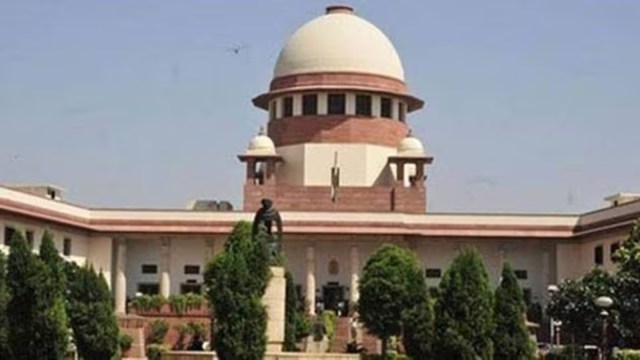How SC ruling on nomination of aldermen to MCD has set the stage for battle between AAP, BJP
This committee plays a crucial role in the financial management and policy making of the MCD, making the current political maneuvering all the more significant.
 The 18 members of the standing committee, once elected, will vote to elect the chairperson of the standing committee. (File Photo)
The 18 members of the standing committee, once elected, will vote to elect the chairperson of the standing committee. (File Photo)Setting the stage for a fierce battle between the ruling AAP and opposition BJP, the Supreme Court held Monday that the Lieutenant Governor (L-G) of Delhi can nominate aldermen to the Municipal Corporation of Delhi (MCD) without requiring the consultation of the Delhi government.
With this, for the first time in the history of Delhi’s civic governance, there is a chance that while the Aam Aadmi Party (AAP) will run the MCD, the Bharatiya Janata Party (BJP) would have control over its purse strings.
According to the Delhi Municipal Corporation Act, 1957, the L-G can nominate 10 individuals over the age of 25 to the MCD. These nominees should possess special knowledge or experience in municipal administration and excel in fields such as health, education, sanitation, and the environment. Traditionally, aldermen are those who have had a long and distinguished service in the civic body, aiding the house in making decisions of public importance.
The nomination of aldermen has been a contentious issue, with the AAP viewing it as an attempt by the BJP to maintain influence over the MCD despite losing the elections. After L-G VK Saxena nominated 10 aldermen, all with affiliations to the BJP, the AAP challenged the move in the Supreme Court. The AAP argued that the L-G should not nominate aldermen without consulting the Delhi government. However, the Supreme Court ruled in favour of the L-G, stating that he has the authority to nominate aldermen independently.
MCD aldermen do not have voting rights in general matters but can vote in the elections of the standing committee, an 18-member key decision-making body that manages the corporation’s finances. The aldermen also have voting rights during the elections of the ward committees. This ruling is expected to streamline the process for forming the ward and standing committees, which has been stalled for the past year due to the political deadlock.
Elections for the ward committees will first take place in each of MCD’s 12 zones. In each zone, all elected councillors are part of the ward committee, and they will vote to elect a chairman, a deputy chairman, and a standing committee member. Each ward committee will elect one member, filling 12 of the 18 seats in the standing committee. The aldermen will also cast their votes to elect a standing committee member in their respective zones. All members of the house will then vote for the remaining six members.
The distribution of aldermen by the L-G has strategic implications. Four aldermen each were nominated for the Narela and Civil Lines zones, and two for the Central zone. In the Narela Zone, which has 16 elected councillors (Five from BJP, 10 AAP, and an Independent), the four nominated aldermen create a potential tie in the standing committee elections with the support of the Independent councillor. In the Civil Lines zone, which has six BJP and nine AAP councillors, the addition of four aldermen gives the BJP a one-vote advantage. In the Central zone, which has 10 BJP, 13 AAP, and two Congress councillors, the two aldermen nominations could help the BJP surpass the AAP with the possible support of the Congress councillors.
Other BJP-dominated wards include Keshavpuram, Najafgarh, and Shahdara South, while the AAP has a clear majority in Rohini, City SP, Karol Bagh, West, and South zones.
The 18 members of the standing committee, once elected, will vote to elect the chairperson of the standing committee. This committee plays a crucial role in the financial management and policy making of the MCD, making the current political maneuvering all the more significant.
The formation of an opposition-majority standing committee could have significant implications for the governance of the city. Generally, the commissioner sends matters of the MCD to the standing committee; once the standing committee approves the agenda matter, it goes to the MCD house for approval. In case the standing committee rejects an agenda, it will fail to reach the house for discussion. While the standing committee has full control of matters pertaining to finances and town planning, other decisions of the standing committee can be challenged by the house.







